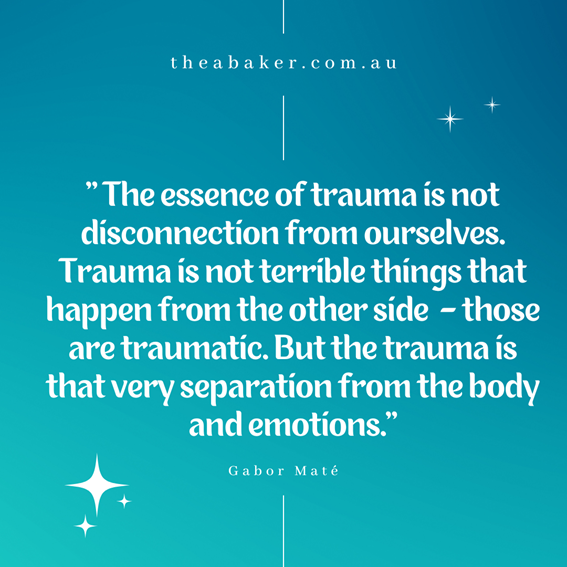No hierarchy of trauma
No hierarchy of trauma
If we could start with the idea that trauma is ‘too much, too fast, too soon’ I think we could really broaden the conversation around what is and isn’t traumatic. Using this approach helps us understand that what we encode as traumatic is really very subjective and individualised, and as such there can be no judgement around trauma.
</p> <!– wp:more –><p>
One of the natural hurdles we come to is the idea that there is no hierarchy of trauma. There is not a single client that I have worked with so far who hasn’t tried to shrug off their trauma (irrespective of how big or small) by saying things like; “but my trauma wasn’t that bad” or, “other people had it so much worse”. When we subscribe – even subconsciously – to the invisible hierarchy of trauma in this way we only serve to make ourselves feel like our experiences aren’t valid which can inhibit our capacity to work through our trauma.
If we can expand the conversation a bit to provide a framework or a lens through which we can hopefully make sense of what we mean when we use the term trauma. Trauma is an interesting word because the official dictionary definition of it looks like this:
Noun:
- a deeply distressing or disturbing experience.
“a personal trauma like the death of a child”
- MEDICINE
physical injury.
“rupture of the diaphragm caused by blunt trauma”
When used in psychological circles the term trauma is now widely used, though sadly often still poorly understood and treated. I could go into a whole rant about that, but I think I’ll save it for another day, but suffice it to say that if you believe you have experienced something traumatic in your life please make sure that the sort of psychological support that you seek out is provided by someone who frames, understands and treats trauma in a similar way to you. If, like me, you have teenagers in your house then you’ve probably heard an overuse of the lament, “it was just so traumatic” (stated in a very dramatic and exaggerated manner but used in relation to something that might have been frightening, or irritating, but probably (often) not ‘traumatic’). So, trauma is over-used in some spaces, underused in others and used poorly in still others.

Instead of pathologising trauma – the effect that comes from a mental health system that is focused on symptom assessment for the purpose of determining a diagnosis and a treatment plan – what if we could understand that trauma is something much simpler and at the same time more profound?
Our human nature is founded on being connected to others. We are born quite literally connected to our mother’s and we are hardwired for connection. None of us want to be like Scar in The Lion King exiled with the hyenas, we feel deeply his desperation of separation from the tribe. It’s not a biproduct of living in our busy, diverse, highly technological world that has seen so many of become disconnected, so riddled with trauma in this way. That trauma has its roots in certain childhood experiences – not having our needs met – that teach us it is too painful to remain connected, and therefore disconnection becomes a defense.

Learning to firstly become reconnected to ourselves, and then others is something that usually requires a skilled psychotherapist or psychologist to serve as a safe attachment figure to come alongside you as you work through your trauma. There are various different approaches from talk therapy, to EMDR through to somatic psychotherapies and I’ve addressed these in other blogs. Here is a list of useful resources that might help you conceptualise and understand trauma better:
- Phoenix Australia: https://www.phoenixaustralia.org/recovery/effects-of-trauma/
- Blue Knot Foundation: https://blueknot.org.au/
- Adverse Childhood Experiences Study (ACEs): https://www.cdc.gov/violenceprevention/aces/index.html
And if you want to explore some more about trauma from some of the leading trauma therapists and researchers in this field, please check out these great podcasts / YouTube interviews:
- Gabor Maté on The Tim Ferriss Show: https://tim.blog/2018/06/04/the-tim-ferriss-show-transcripts-dr-gabor-mate/
- Oprah Winfrey and Dr Bruce Perry on Brené Brown’s podcast: https://brenebrown.com/podcast/brene-with-oprah-winfrey-and-dr-bruce-d-perry-on-trauma-resilience-and-healing/
- Tim Ferriss talking about his own experience of childhood trauma (not graphic but I’m going to throw out a trigger warning to be on the safe side): https://tim.blog/2020/09/14/how-to-heal-trauma/
- Deb Dana on The Weekend University: https://www.youtube.com/watch?v=HU9aIzOlllY
If it’s the right time to talk about your trauma, we have a team of therapists at Thea Baker Wellbeing – please reach out to us at: hello@theabaker.com.au / 03 9077 8194.
